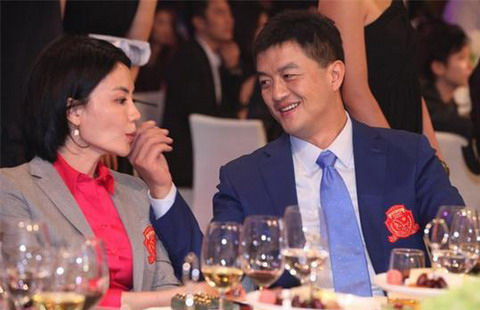Adieu, Takakura, hope your legacy lives on
By Zhu Ping (China Daily) Updated: 2014-11-21 08:13Manhunt was followed in the 1980s by NHK's hit serial drama Oshin which made the Chinese audience appreciate ordinary Japanese people's industriousness, kindness and resilience. An Unfinished Chess Game (1982), a milestone film marking the 10th anniversary of normalization of diplomatic ties, reflected the legend of Chinese go chess player Wu Qingyuan and his Japanese friends against the historic background, from war to peace. Blood Doubts told the story of unique love and strong family bonds. Volleyball Girls boosted Chinese people's love for sports at a time when the Chinese women's volleyball team had won five titles at the world level. And cartoon character Smart Monk Ikkyu San became the idol of children.
This phase was followed by Japanese idol dramas in the early 1990s, when the end of the Cold War started a new chapter in Sino-Japanese ties. While the West imposed sanctions on China, top Chinese and Japanese leaders exchanged visits boosting bilateral ties.
At that time, Tokyo Love Story, Under One Roof and Tokyo Cinderella Story turned Yuji Oda, Masaharu Fukuyama and Karasawa Toshiaki into idols of Chinese youths similar to what South Korean stars Lee Min-ho and Kim Soo-hyun are today.
The rise of China and stagnation in Japan since the mid-1990s caused a power shift in East Asia. Frictions and confrontations increased as nationalist sentiments grew in Japan. The drastic change in Japan's official aid and loan policy toward China, its defiant Taiwan policy and then Japanese prime minister Ryutaro Hashimoto's visit to Yasukuni Shrine, which honors 14 Class-A war criminals, soured bilateral ties.
After a brief warming period in the early 2000s, bilateral relations reached a low point again because of former Japanese prime minister Junichiro Koizumi's repeated visits to Yasukuni. Japanese politicians' reckless policy of playing up nationalism to win votes has made Japan a dubious entity in the eyes of Chinese.
No wonder, the "Korean wave" has swallowed Japanese pop stars in the Chinese market. South Korea's Blue Ghost, Winter Sonata and Dae Jang Geum, in fact, are symbolic of the rapidly developing China-South Korean ties.
In the run-up to Shinzo Abe's ice-breaking visit to China in October 2006 during his first term as Japanese prime minister, China Central TV broadcast The Great White Tower, signalling the short spring of Japanese TV dramas in China.
But in the years that followed, Japan's "nationalization" of China's Diaoyu Islands, repeated denial of war crimes, including the use of "comfort women", building a full-fledged military and attempting to revise the pacifist Constitution should be blamed for the worst phase in bilateral ties in decades.
Under such circumstances, wouldn't it be odd if Chinese TV channels broadcast anti-Japanese aggression dramas on one hand and Japanese idols, even if they are in Hanzawa Naoki, occupying TV screens on the other?
Abe has dissolved the parliament and called fresh election next month. But no matter what he does, his attempts to revive Japan's economy will fail without close trade ties with China. The onus is now on Abe to improve ties with China and save the Japanese economy from going into another long recession.
Takakura is gone. But we hope Takukura's legacy of Sino-Japanese friendship pervades Japanese leaders and people.
The author is an editor with China Daily. zhuping@chinadaily.com.cn
The opinions expressed on this page do not necessarily reflect those of China Daily











